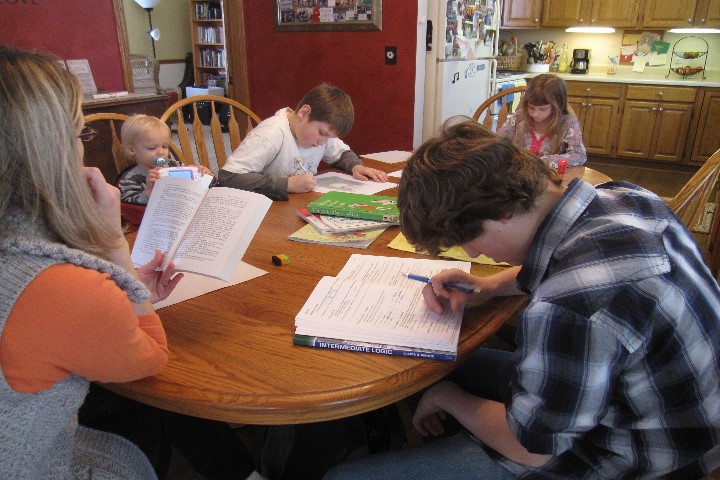As school-choice options continue to proliferate across the country, the Monadnock Ledger-Transcript delved into the experiences of New Hampshire homeschoolers.


As school-choice options continue to proliferate across the country, the Monadnock Ledger-Transcript delved into the experiences of New Hampshire homeschoolers.
Homeschooling is a distinct education option for parents who are looking to meet the unique needs of their children or who want their family relationship to extend into the classroom. For those who wish to craft in a careful way the moral ecology in which their children develop, homeschooling is an ideal option.
Since 1999, homeschooling rates have been on the rise in New Hampshire, according to the Monadnock Ledger-Transcript. George D’Orazio, chairman of the state’s Home Education Advisory Council, admits that it is hard to know exactly why. However, he has an inclination that many families decide to homeschool even if they know the local public school would provide just as good an experience in terms of academics.
It seems that homeschoolers are considering more than just academic content. They are concerned with the culture or moral ecology in which their children are raised, and they recognize the formative power of family life.
Homeschoolers also point towards community engagement as a benefit. Freed from the restrictions of a normal school day, parents can take their children to visit and learn from local businesses, community organizations, government agencies, and homeschooling support groups. They can ensure that their children are active members of the moral ecology that makes up their community.
Donna Straitiff, a local library director, described the monthly programs that she and her staff put on for homeschooling families. This month she included a demonstration of a 3D printer, and last month a representative from a large soft drinks company attended to discuss recycling.
Researchers at the Institute for Advanced Studies in Culture echo parents’ intuitions about moral ecology in the Culture of American Families report, published in 2012: “It is true that the seedbeds of virtue are found within many overlapping domains that would include the school, peer relationships, places of worship, the internet, and popular culture, but most important of all is the family and its culture. Family culture acts as a filter for the larger culture, and its role in forming character ideals among the young is fundamental and irreducible to other factors. Whether or not parents are deliberate about it, they create a moral ecology through which children come to understand and internalize the moral life of the larger world.”
Homeschoolers, almost invariably, are those who deliberately choose to craft the moral ecology of the home. Given what we know about the impact of moral ecology on a child’s character, it makes sense that parents would want to be deliberate about the task.
Many homeschoolers are inspired to begin homeschooling by the writings of Charlotte Mason, who eloquently contended that, “Education is an atmosphere, a discipline, and a life.” This short introduction offers a view into how a particular approach to home education can shape the moral ecology of the home.